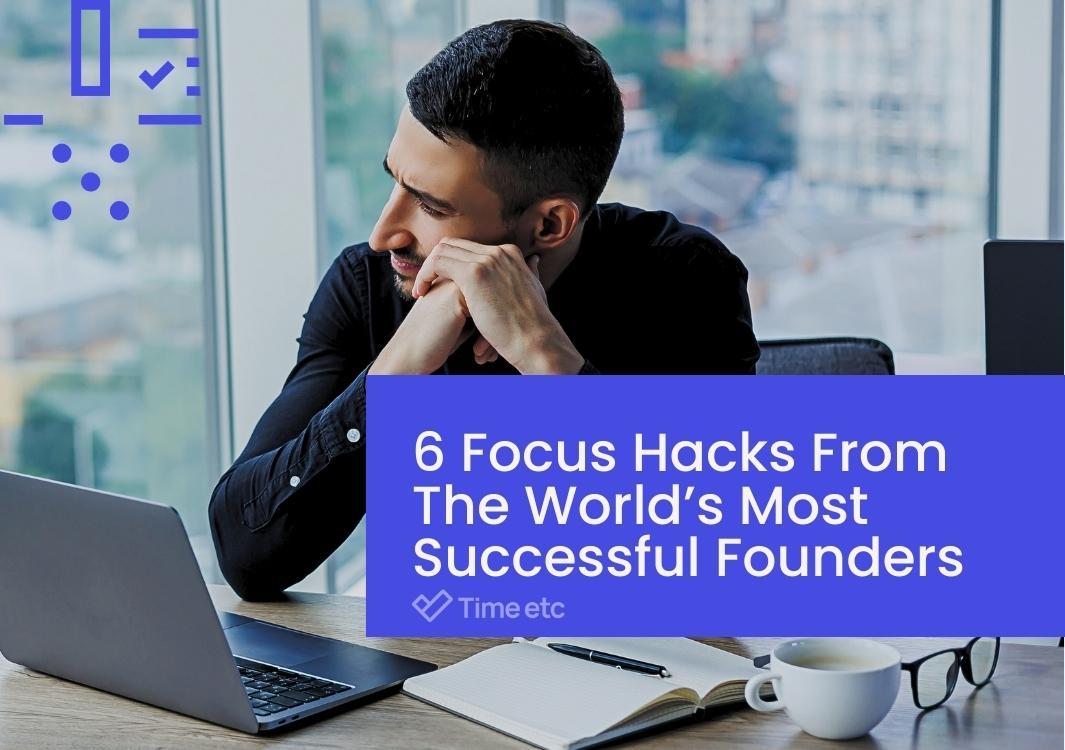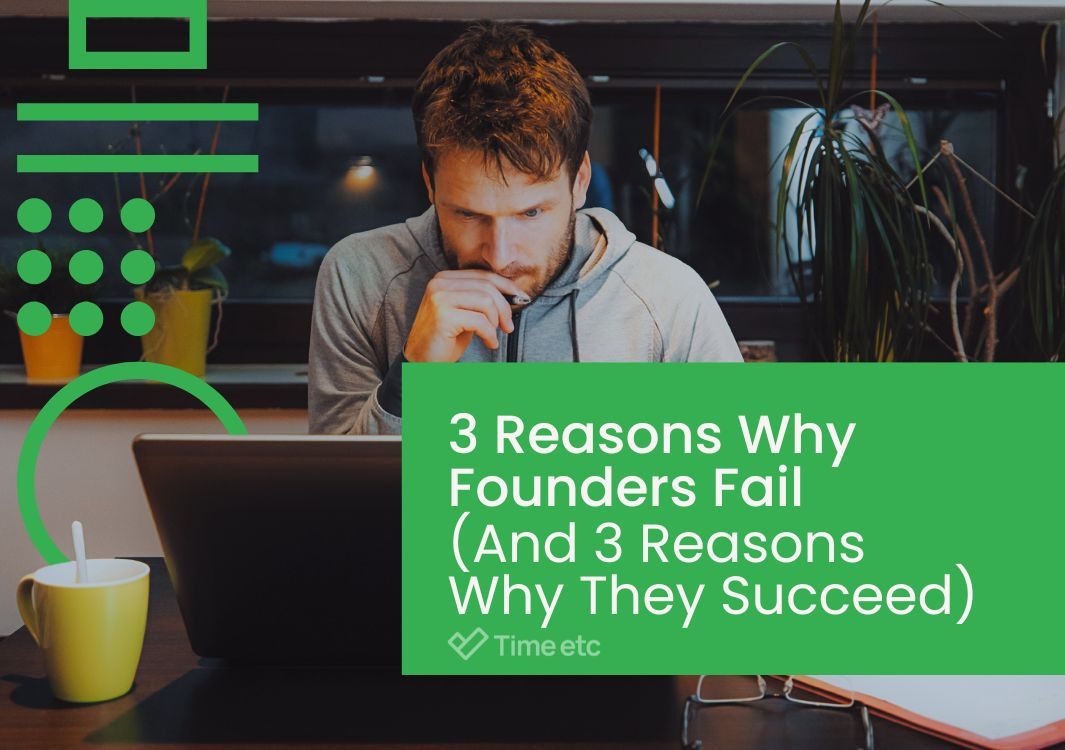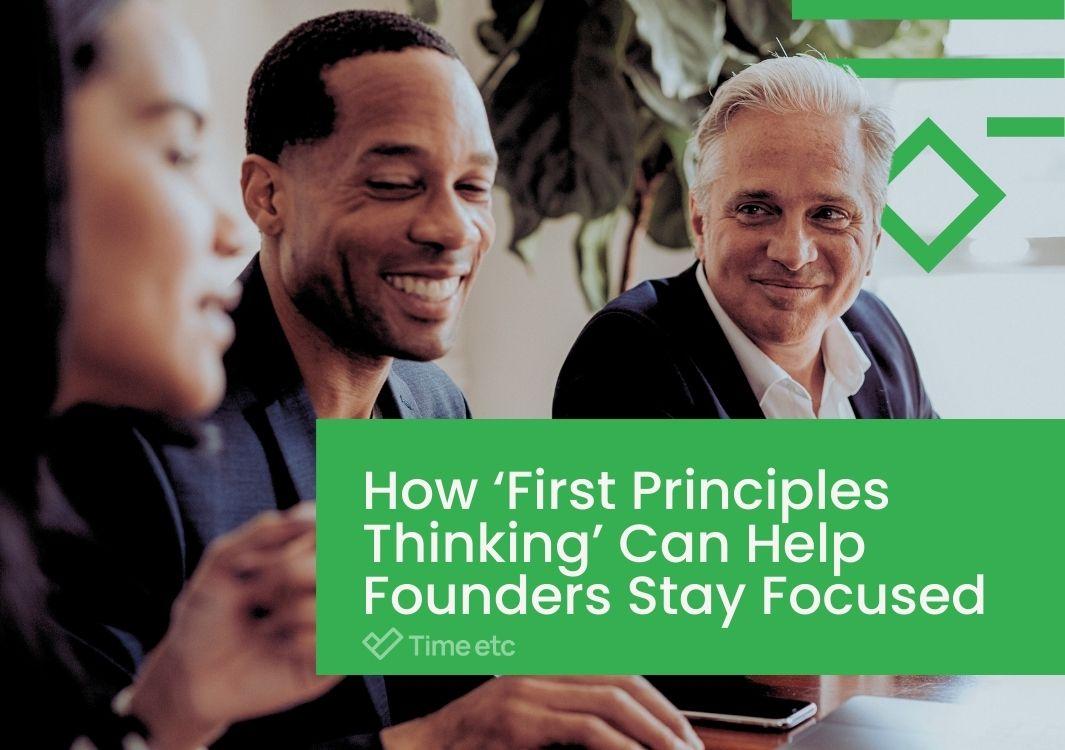As a founder, your ability to focus isn’t just important—it’s everything.
It’s what keeps your vision sharp, your momentum strong, and your company moving forward.
But here’s the cruel irony: With constant pressure, countless decisions to make, and distractions pulling you in every direction, the very nature of being a founder makes focus especially elusive.
So, does this mean the world’s most successful founders are just naturally gifted at concentration? Is there any hope for the rest of us?
Well, the good news is that they aren’t superhuman. They live in the exact same world as us, filled with pinging notifications and responsibilities competing for their attention.
What sets them apart is that they protect their focus like it’s their most valuable asset—because it is. They’ve built systems, habits, and boundaries to keep their attention exactly where it needs to be.
Let’s explore these simple yet powerful strategies that keep them on track.
1. Jeff Bezos’s ‘eight hours’ rule
Amazon founder Jeff Bezos is one of the wealthiest and most influential people in the world. His secret to staying sharp? Getting a full eight hours of sleep each night.
“I think better. I have more energy. My mood is better,” he says.
Research backs this up. According to the Sleep Foundation, lack of sleep can reduce cognitive function and emotional capacity, impair judgment, and lead to emotional instability.
As a founder or executive, Bezos says, your value lies in your ability to make a small number of high-quality decisions. So in a world where making the right call can lead to huge returns (and the wrong ones can be costly), he’s a stickler for proper rest and recovery.
Chances are, we've all felt pressured to burn the midnight oil at some point in our lives, either out of ambition or necessity. But in the words of Bezos himself, “Is that really worth it if the quality of the decisions might be lower because you’re tired or grouchy?”
How you can apply this
A well-rested mind leads to better decision-making, sharper thinking, and increased resilience in high-pressure situations.
- Treat sleep like an investment: If you wouldn’t skip an important business meeting, don’t skip quality sleep.
- Keep a consistent sleep schedule: Going to bed and waking up at the same time every day—even on weekends—helps regulate your circadian rhythm, improving sleep quality and making it easier to fall asleep and wake up feeling refreshed.
- Set yourself up for sleep success: Even with good sleep habits, your environment plays a huge role in the quality of your rest. Try cutting back on screens before bed, keeping your room cool, and easing up on caffeine in the evening.
- Avoid big decisions when you’re running on empty: If possible, always hold off on major calls until you’re well-rested and thinking clearly.
See: How To Get More Sleep: The CEO's Guide To Reclaiming Your Rest

2. Oprah Winfrey’s 'single-tasking'
Oprah Winfrey is a media, business, and philanthropic powerhouse. With so many strings to her bow and so many plates to keep spinning, it would be easy to assume that her success is borne from being a master multitasker.
But in fact, the opposite is true.
Winfrey credits much of her success to one simple but powerful habit—being fully present in whatever she’s doing. She gives each task her full attention before moving on to the next.
"I have learned that I can do anything, but I can’t do everything at once," she explained.
And science backs her up. Each time you jump between tasks, your brain has to refocus, spending valuable cognitive energy. Studies show that the mental costs of multitasking can reduce productivity by up to 40%, increase error rates by up to 50%, and trigger stress responses in our bodies.
Researchers have also found that heavy multitaskers struggle more with filtering out distractions, making it harder to focus deeply on any single task.
How you can apply this
Trying to work through your to-do list while on a Zoom call might feel more efficient in the moment, but the science is clear: single-tasking is the smarter approach for deep focus and high-quality work.
- Time-block your tasks: Rather than keeping an open-ended to-do list of things you’ll complete as and when, allocate specific time slots to work solely on certain tasks.
- Eliminate distractions: Put your phone on "Do Not Disturb" and close unnecessary tabs.
- Use the Pomodoro technique: Work in focused 25–50 minute sprints with short breaks in between.
See: 5 Essential Reasons To Stop Multitasking And Start Monotasking Today
3. Jack Dorsey’s ‘day theming’
Jack Dorsey, the former CEO of Twitter (now X) and Square, once managed two major companies at the same time. With only so many hours in a day, how did he make sure that each critical area of each business got the attention it deserved from him?
His answer: Day theming—dedicating an entire day to a specific domain, project, or set of tasks.
This is how Dorsey's weeks looked during this time:
Monday: Management
Tuesday: Product, engineering, and design
Wednesday: Marketing, growth, and communications
Thursday: Partnership and developers
Friday: Company and culture.
Following this method helped Dorsey cut out the daily hassle of deciding what to focus on. There was no need to waste time or mental energy each morning weighing up his priorities—he could dive straight into the day’s theme, fully immersing himself in that specific area of work.
Similar to the benefits of single-tasking, what makes day theming so effective is that it minimizes context switching—a serious productivity killer. This, in turn, makes it easier to enter a flow state where you can work with deep focus for extended periods.
How you can apply this
Even if you’re not managing multiple companies, you can use day theming to spend less time context-switching and more time making high-impact progress.
- Identify key areas of focus: What are the biggest priorities in your role or business? Write down 4–5 major categories (e.g., client work, strategy, marketing, team leadership).
- Assign each category to a day: Structure your workweek like Dorsey did, giving each major focus area its dedicated time.
- Stick to the plan (but allow flexibility): While some urgent tasks may pop up, try to honor the theme of the day as much as possible to protect your deep-focus time.
See: 10 Ways To Overcome Distractions And Stay Focused As An Entrepreneur

4. Warren Buffett’s ‘5/25’ rule
One of the biggest challenges for founders—and high achievers in general—is figuring out where to direct their focus.
With so many potential opportunities to explore and tempting side projects to pursue, it’s easy to fall into the trap of trying to do everything at once.
Warren Buffett, one of the most successful investors in history, once shared his goal-setting strategy with his personal pilot, Mike Flint. According to Flint, here’s what he told him to do:
- Write down 25 career goals—everything he wanted to accomplish, big or small.
- Circle the top five—the ones that truly mattered most.
- Ignore the remaining 20 completely.
At first, Flint assumed that the other 20 goals would serve as secondary priorities—something to work on when he had extra time. But Buffett corrected him, explaining that those 20 goals weren’t just lower priorities; they were distractions.
Buffett's "5/25 Rule" is a powerful filter for cutting through the noise and staying focused on what really matters. Because if everything is a priority, nothing is.
How you can apply this
As Buffett himself demonstrates, success isn’t just about what you say "yes" to—it’s also about what you say "no" to. Laser-focus on the right priorities can be the difference between long-term success and endless busywork.
- List 25 goals and identify your top five: Write down 25 things you genuinely want to achieve. Once your list is complete, go through it carefully and circle the top five goals that are most meaningful to you. These should be the ones that would have the biggest impact on your success and fulfillment if accomplished. These are your non-negotiables—the goals that deserve your full attention.
- Create a “Do Not Work On” list: Now, look at the remaining 20 goals. Rather than keeping them on the back burner, explicitly move them to a ‘Do Not Work On’ list. This list serves as a mental firewall, preventing you from spreading yourself too thin.
- Review your goals regularly: Simply setting goals once isn’t enough—you need to revisit them consistently to make sure you’re staying on track.
See: How To Prioritize As An Entrepreneur: What To Do When All Tasks Feel Important
5. Bill Gates’ ‘scheduled solitude’
Back in the 1980s, Microsoft co-founder Bill Gates was at the helm of a rapidly growing tech empire.
Even then, Gates knew that billion-dollar ideas aren't likely to spring from flurries of meetings or jam-packed to-do lists. Real innovation comes when you give your mind the space to explore, analyze, and think deeply.
He started a powerful twice-yearly tradition to carve out this space: “Think Weeks”—seven days in a secluded cabin with no meetings, no calls, and no distractions. Instead, he devoted this time to immersing himself in research papers and company memos, thinking critically about the future, and brainstorming new ideas.
One of the most significant innovations that emerged from these Think Weeks? Internet Explorer—the web browser that would play a major role in shaping the digital age.
How you can apply this
In a world obsessed with busyness, true breakthroughs happen when we step back. Bill Gates’ 'Think Week' tradition is proof that big ideas require space.
- Schedule time for reflection: Most of us might struggle to disappear for an entire week, but thankfully, we don't need to. Simply block out at least a few hours each week for deep, uninterrupted thinking.
- Find a quiet space: Turn off notifications. Put your phone in another room. Close out of email. Your mind needs quiet to shift from reactive mode to focused mode, where your best ideas come to life.
- Use solitude to strategize: Step back from daily operations to focus on the bigger picture and long-term vision. Open up a notebook, a blank document, or even a voice recorder—whatever helps you think best. Let yourself dream, strategize, and explore “what if” scenarios without the immediate pressure to execute.

6. Richard Branson’s ‘gather a great team’
Many founders fall into the trap of trying to do everything themselves, believing that their passion and dedication alone will be enough to power their success.
One of the world’s most renowned founders, Richard Branson, attributes much of his success to a different approach: building a strong team and mastering the art of delegation.
Branson believes that the secret to scaling a business is surrounding yourself with capable individuals who can take on responsibilities that don’t require your direct involvement. “The key thing is to get a great, fantastic team of people around you,” he explains. “I knew my weaknesses and therefore got out and found other people who could perform and run things better than I could.”
This level of self-awareness allowed Branson to focus on what he does best—innovating, strategizing, and growing his businesses—while day-to-day operations ran smoothly in the background.
Not only that, Branson emphasizes that offloading tasks shouldn't be an afterthought or a last resort when things become too overwhelming. Instead, founders should make it a priority early on so they can stay laser-focused from the get-go rather than getting “bogged down in the minutiae of the hustle and bustle of running a company”.
How you can apply this
If Richard Branson’s success teaches us anything, it’s that founders don’t have to (and shouldn’t) do it all themselves.
- Assign tasks strategically: Rather than trying to be an expert in every aspect of your business, take an honest look at your strengths and weaknesses. Where do you shine, and where could someone else do a better job? Identify key areas where bringing in skilled, experienced individuals could make a significant impact.
- Start early: Many business owners wait until they’re at their breaking point before even considering hiring an assistant. But by that point, it often feels too overwhelming to bring someone on board and show them the ropes. So, whether it’s email management, invoicing, or content creation, the sooner you outsource these responsibilities, the sooner you can focus on big-picture strategy and growth.
- Trust your team: The time and energy it takes to micromanage your assistant defeats the purpose of offloading tasks and only adds more stress to your plate. Instead, set clear expectations, provide the resources they need, and be there to answer questions in the early stages. They'll soon get used to your processes and will be handling your tasks efficiently before you know it.
See: Why Doing Everything Yourself Is Costing You More Than You Think
What's the bottom line?
The world’s most successful founders didn’t get to where they are today by working longer hours than everyone else or piling their plates with the most work.
What has set them apart from others?
Their ability to focus.
So, take a page out of their playbook and protect your focus at all costs.
Getting plenty of rest, tackling one thing at a time, prioritizing ruthlessly, theming your days, carving out quiet moments, and most importantly, offloading tasks strategically can all help you show up as your best self for the work that truly matters.
Need more space to focus on your business?
Time etc is here for you.
We've helped over 22,000 founders create the space they need for deep work, strategy, and growth by matching them with the best assistants for their admin.
We take care of everything, from finding the perfect assistant to managing the day-to-day details, so you don’t have to. This means you get uniquely tailored support from our top-tier talent pool, all while skipping the usual hiring hassle and cutting traditional hiring costs by up to 90%.
So, if you're ready to start clearing your plate, speak to our expert team today, and we’ll handle the rest!
P.S. Not sure where to start? Answer a few quick questions to get personalized task recommendations—plus $150 off your first month of virtual assistant support!










